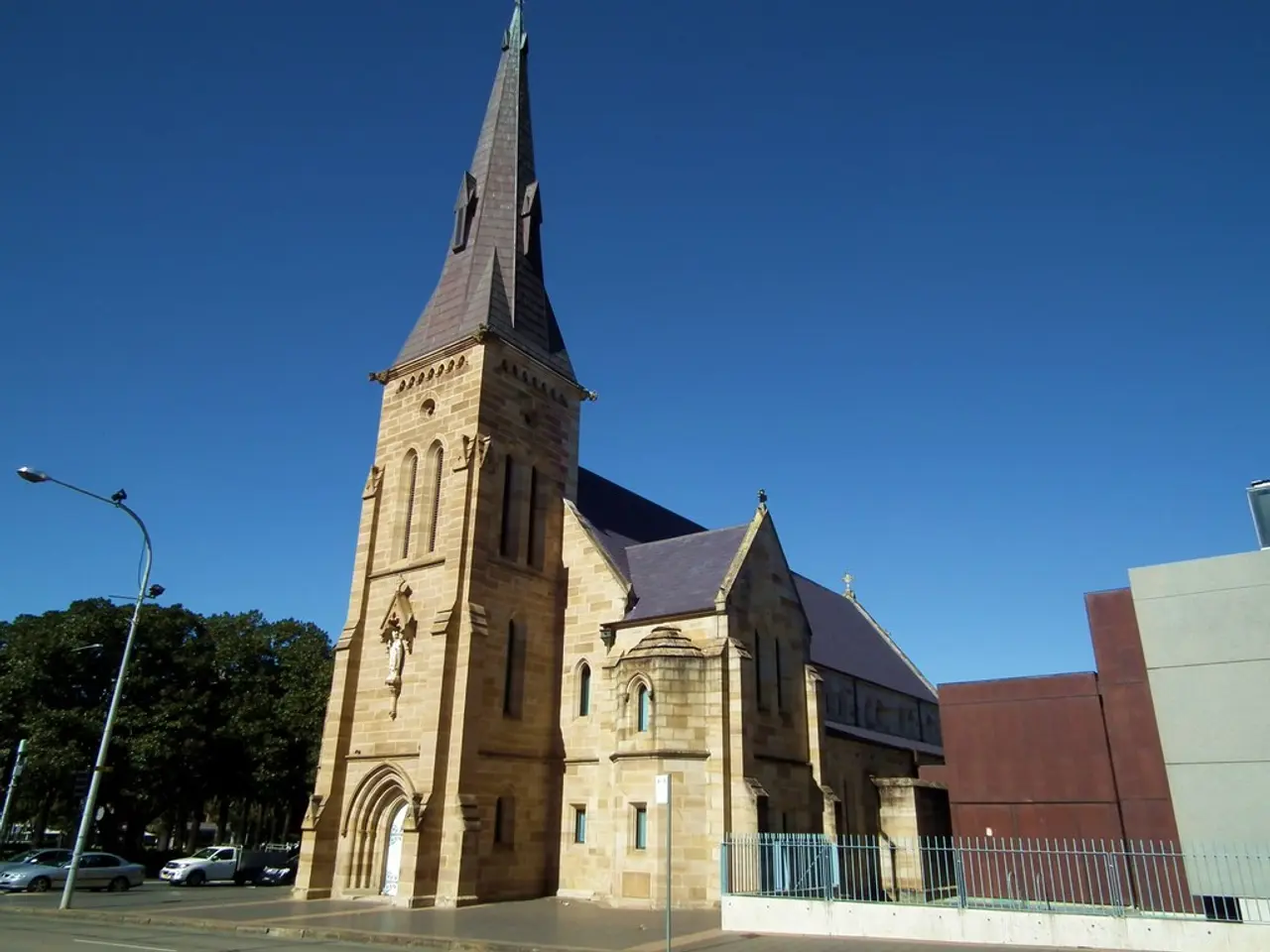Conflicts Ignite Rising Temperatures: How Armed Struggles Intensify Global Warming
System Change Camp Returns to Frankfurt for a Weekend of Activism and Collaboration
From August 14 to 16, the System Change Camp will once again transform Frankfurt am Main into a bustling hub of activism, education, and networking. Organized by Paula Fuchs (22), a prominent figure from the climate justice movement, the event aims to bring together diverse groups and movements to discuss, learn, and collaborate on systemic change1.
The System Change Camp's motto, "History is possible - System Change too," encapsulates its spirit of hope and determination. The event will feature a wide range of workshops, discussions, and activities, with themes spanning self-organization, care work, combating discrimination, and fossil fuel dependence3.
One of the key highlights of the camp will be a panel discussion on militarism and the climate crisis, led by Ende Gelaende4. Emerging groups such as "Public Transport instead of Tanks" in Goerlitz are also connecting the topics of wars and the climate crisis, further underscoring the camp's commitment to intersectional activism4.
The System Change Camp is not just a festival for consumption. Participants are encouraged to contribute to the setup and teardown of the event6. The camp also prioritizes inclusivity and diversity, with an anti-discrimination concept, safe spaces, and workshops aimed at addressing racism and educating white people7.
The camp's organizers, who are predominantly white and Christian-influenced, are actively reaching out to underrepresented perspectives8. The event will also feature stages for artists like Ali Fathi, an exile Iranian artist who has long been artistically opposed to arms exports from the Federal Republic9.
The System Change Camp will also delve into the impacts of the climate crisis on regions from the Global South, with workshops discussing the effects on Syria and other perspectives from the Global South10. The camp will also feature a Palestine solidarity network, which emerged from last year's camp and raises the Palestinian struggle for freedom within the German climate justice movement11.
Local Frankfurt groups have been networking with the System Change Camp for months, and the event is actively mobilizing in nearby neighborhoods12. The performance "Made in Germany - German weapons, global traces of violence" will explore Germany's colonial heritage and the role of German weapons exports worldwide13.
Two anti-imperialist program tents will be a significant part of the camp, including Debt for Climate, a group initiated from a post-colonial perspective14. The Interventionist Left Frankfurt will also be contributing to discussions on war, armament, and the climate crisis at the camp15.
The System Change Camp expects around 1000 participants and will have formats involving locals, such as camp tours and demonstrations ending at the camp6. The camp aims to foster a cross-movement space for education, exchange, and networking around diverse topics related to systemic change, acting as a hub that nurtures collaboration and dialogue among diverse activists3.
- At the System Change Camp, attendees will explore the intersection of different topics such as self-organization, care work, combating discrimination, and fossil fuel dependence, all in the pursuit of systemic change.
- The camp's panel discussion on militarism and the climate crisis will feature Ende Gelaende, addressing the connection between wars and the climate crisis.
- Participants are invited to contribute to the setup and teardown of the event, understanding that the System Change Camp is not just a festival for consumption.
- The System Change Camp strives for inclusivity and diversity, with workshops aimed at addressing racism, promoting safe spaces, and educating white people about combating discrimination.
- The camp will engage with the impacts of the climate crisis on regions from the Global South, featuring workshops on the effects on Syria and other perspectives from underrepresented regions.







